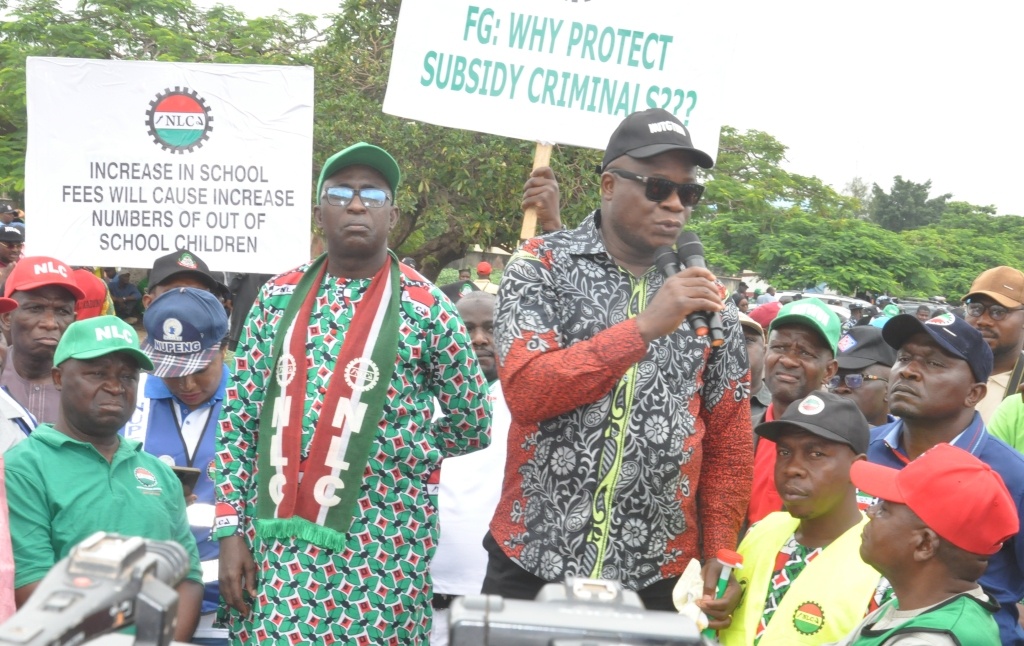25 July, 2024Trade union federations in Nigeria, the Nigeria Labour Congress (NLC) and the Trade Union Congress (TUC) signed a new minimum wage agreement of 70 000 Naira ($43) with the Federal Government of Nigeria on 18 July which will be reviewed after three years.
Unions wanted at least N250 000 ($156) which would have been a step towards a living wage. The previous minimum wage of N30 000 ($19) had become an outdated poverty wage eroded by high inflation. The last minimum wage review was done in 2018.
To push for the demands for new minimum wages, unions went on national strikes in 2023 and a national shutdown in June. One of the recommendations in the memorandum of understanding signed by the federal government with the unions was the setting up of a minimum wage committee. The unions argued that the low minimum wages had lost value and were no longer adequate against the increasing cost of living. Food prices and transport costs had hiked following the removal of petrol subsidies. Further, the unions wanted pro-poor economic policies and food security in one of Africa’s largest economies with a population of nearly 230 million people.
Unions cited Section 16 of the Constitution of the Federal Republic of Nigeria in their campaigns and pickets for better wages. The Section calls for
“adequate shelter, suitable and adequate food, a reasonable national living wage, old age care and pensions, unemployment, sick benefits and welfare of the disabled are provided for all citizens.”
Joe Ajaero, NLC president said the federation’s emergency national executive committee resolved to support the proposed minimum wages.
“This decision, though challenging and far from our initial demand, was made in the spirit of solidarity and sacrifice for Nigerian masses to avert a threatened further hike in the price of petrol which would inflict more hardship on the already suffering masses.”
Ajaero is also general secretary of IndustriALL Global Union affiliate, National Union of Electricity Employees (NUEE).
“We cautiously welcome the minimum wages and support the union's efforts towards a social contract that will improve wages in Nigeria,”
said Paule France Ndessomin, IndustriALL regional secretary for Sub Saharan Africa.


